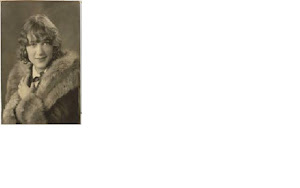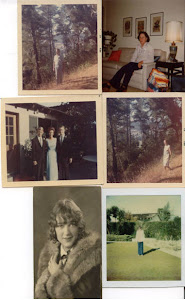The eight ladies and gentlemen of Na Mele Moana all starched and ironed sang, danced and played for a handful of old folks at the First Baptist Church Adult Day Care Center on Pali Highway just outside of town this morning.
My husband is Na Mele's new bass player. I went along to carry his ukulele, just in case he should need an ukulele.
I had expected to be depressed by the blank faces and slumped slumped bodies of the elders. But, when I saw them parked in a line in their wheelchairs, wrapped up in hats and scarves and sweaters on this eighty-degree morning, ready to be entertained, I only felt a little sad.
Infants are cute, appealing symbols of hope. Fragile old people are not, and for most of us, they are a preview of our inescapable fate. During my hour with them, I thought more than once, "If I ever get like this, I'm going to end it!" I don't know if I really would, but it seemed like a good idea.
Molly is the general-director and high muckymuck of Na Mele. She's a tiny, slightly scrawny woman of Japanese descent who comes by her toughness honestly through a generation of plantation workers. Her very curly salt-and-pepper perm, lots of Hawaiian gold bracelettes and pendants, big round milky jade earrings, and crisp little bifocals. She waits patiently for the bustle of her own people, unzipping ukulele cases, getting out the paraphernalia for the hulas, adjusting their flowers, to subside. Waits for Maile, an ample Hawaiian woman with a white cotton slip showing beneath her mu'umu'u , to find her wooden sticks and clickety-clackety stones and tune her ukulele. She watches the guitarist, whose name I didn't catch, page through the music on his stand. He is puzzled. She whispers something to him. He brightens. Sally, the only haole stands back and beams at everyone, she doesn't play an instrument, but does lead all the hulas. She is genuinely excited.
Sachi sets up his amplifier and music stand in a corner, out of everyone's way. Never looking up or smiling, he plays a steady beat for each song, like a metronome.
At exactly at 10:00 A.M. everyone is ready. Molly hugs her ukulele against the maroon Antherium print of her dress and sets off with something that she is sure the old people will recognize - Peg O'my Heart, a World War II hit. It is hoped that the old people will sing along. They don't. The gray heads do not nod to the beat, the feet don't tap. They don't seem to hear. I check for hearing aids. I don't see any in any. Could that be the problem? The bent old bodies are all sliding down in their wheel chairs.
Molly leads by force and volume, shouting out the songs in a strained, slightly off-key voice, whacking at her ukulele as if it had misbehaved. Na Mele follows. The key is bad for everyone, but they're probably used to it and know all the chords in that key and in that key only, whether they can sing it without their voices cracking or not. I join in, hoping that it will encourage the old people. They don't care.
After Peg O'my Heart, three of the ladies put down their ukuleles and step forward to dance, with Sally in the middle. The women on either side of her watch her because they don't remember the dance very well. Sally, perfectly confidant and happy, calls out the moves. They finish with one foot forward and both hands held out before them, looking as if they're about to dive, and bow slowly. I applaud. The gray figures in the wheel chairs lean every which way like discarded dolls. One lady looks up blankly, puzzled.
What must it be like to float along in half-awareness, be delivered every morning to a place that you can't remember from one day to the next, be left there with people you think you don't know and with no idea of what is going to happen to you, and then to have a troupe of people in yellow and red and green mu'umu'us appear and start banging away at Hawaiian tunes and oldies, but goodies? How do you explain to yourself what is going on? Is this some kind of crazy, cosmic circus you've landed in?
Na Mele enjoys it. They enjoy putting the date on their calendars, love dressing up. They get warm feelings from 'doing something for others,' and it gives them a chance to perform. Even packing up and leaving are fun--fun carrying all the instrument cases out to the parking lot afterwards, after the saltines with peanut butter and tiny paper cups of apple juice, and a pleasure caling back and forth to each other, 'don't forget practice on Monday" and "remember Aloha Hospital on Thursday.' They take their time finding their keys, loading their stuff in their cars, leaving, shouting, 'A hui ho!' Hawaiian for 'see ya later!.'
Jaunty pop tunes at high volume are already bouncing out of the basement center. Rose and her helper Kimo are getting the old men and women ready for their lunch.
Friday, January 25, 2008
Subscribe to:
Post Comments (Atom)





No comments:
Post a Comment